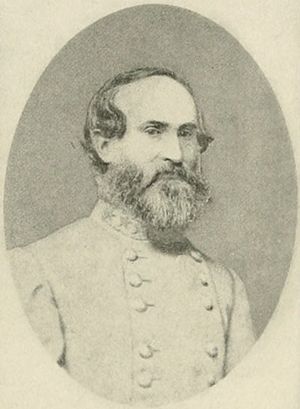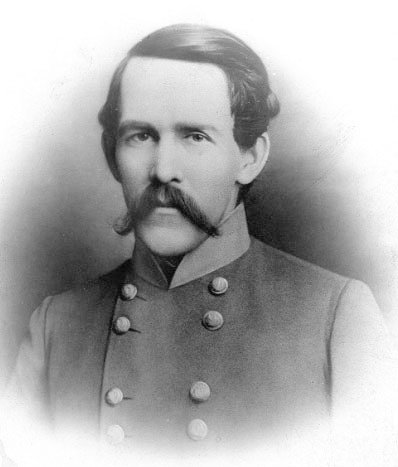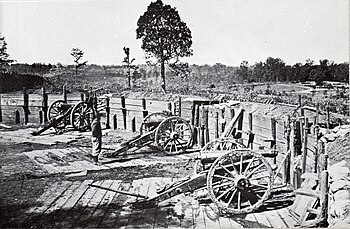 |
| Early |
After Jubal Early's 1864 invasion of Maryland, Union cavalry general Philip Sheridan, one of Grant's favorite commanders, was detached to command the Army of the Shenandoah to deal with that threat. For several weeks the armies of Sheridan and Early skirmished in the Shenandoah Valley without any major fighting. Sheridan had 39,000 men, Early only 14,000. Early decided that Sheridan did not plan to fight him, so he did not concentrate his army and left it spread out over many miles. Sheridan, however, was looking for an opportunity just like this to attack. He set his troops moving out to strike Stephen Ramseur's division around Winchester. When Early heard of this movement he ordered all of his troops to concentrate on Ramseur's isolated force.
 |
| Rodes |
Sheridan's men were awakened at 1 am on September 19th, 150 years ago today, to begin their march on Winchester. Their progressed was slowed by a canyon, which became clogged by the Union columns and supply wagons. By noon the Federals arrived in position and attacked Early's line, which had now been reinforced by John B. Gordon's division on the left. Two corps advanced, the VI Corps under Horatio Wright on the left, and and XIX Corps under William Emory on the right. Both made some progress against the rebels, slowly driving them back. Where the Confederates were driven back they counterattacked. In one of these Confederate Major General Robert Rhodes was wounded as he led his men forward, shouting, “Charge them boys! Charge them!.”
 |
| Sheridan |
As the Federals pressed forward a gap opened between them. Reinforcements were rushed close it, but before they arrived the Confederates took advantage of the opportunity. The Federal division of David Russell counterattacked, and stunted the Confederate attack. In the attack, Russell was hit with fragments of a shell, and fell mortally wounded. Emory Upton, known for his attacks at Spotsylvania and Cold Harbor, took over the division.
With his attacked stalled Sheridan brought up his reserves, the VII Corps under George Crook, and sent them to strike the Confederate left flank, while the other two corps advanced in support. The advance encountered difficulty. Crook's men had to move through a swamp, and the XIX Corps did not get moving at all. A shell tore off a piece of Emory Upton's thigh, but he continued to command his division from a stretcher. Future president Rutherford B. Hayes, commanding a division with Crook, wrote of crossing the swamp:
[T]o stop was death. To go on was probably the same; but on we started again ... the rear and front lines and different regiments of the same line mingled together and reached the rebel side of the creek with lines and organizations broken; but all seemed inspired by the right spirit, and charged the rebel works pell-mell in the most determined manner."
Finally the Federals began to drive back the Southern lines. Early pulled back his lines, but the Federals drove them back closer and closer to Winchester. Sheridan was riding along his lines, waving his hat and encouraging his men. His cavalry was moving around Early's flank, threatening to surround his entire force. Finally as the sun set, the Confederate army was in full retreat.
.png/450px-Sheridan's_final_charge_at_Winchester_(retouched).png) |
| Sheridan leads the charge |
Many call this battle the turning point for the Union in the Shenandoah Valley. This victory began the tide of Union victories. Both sides had suffered heavy casualties. The Federals lost more than 5,000, the Confederates over 3,500. Early had lost a quarter of his army. More men fell at the Battle of Opequon, or Third Winchester as it is also known, than in Stonewall Jackson's entire 1862 Valley Campaign.



.png/450px-Sheridan's_final_charge_at_Winchester_(retouched).png)






